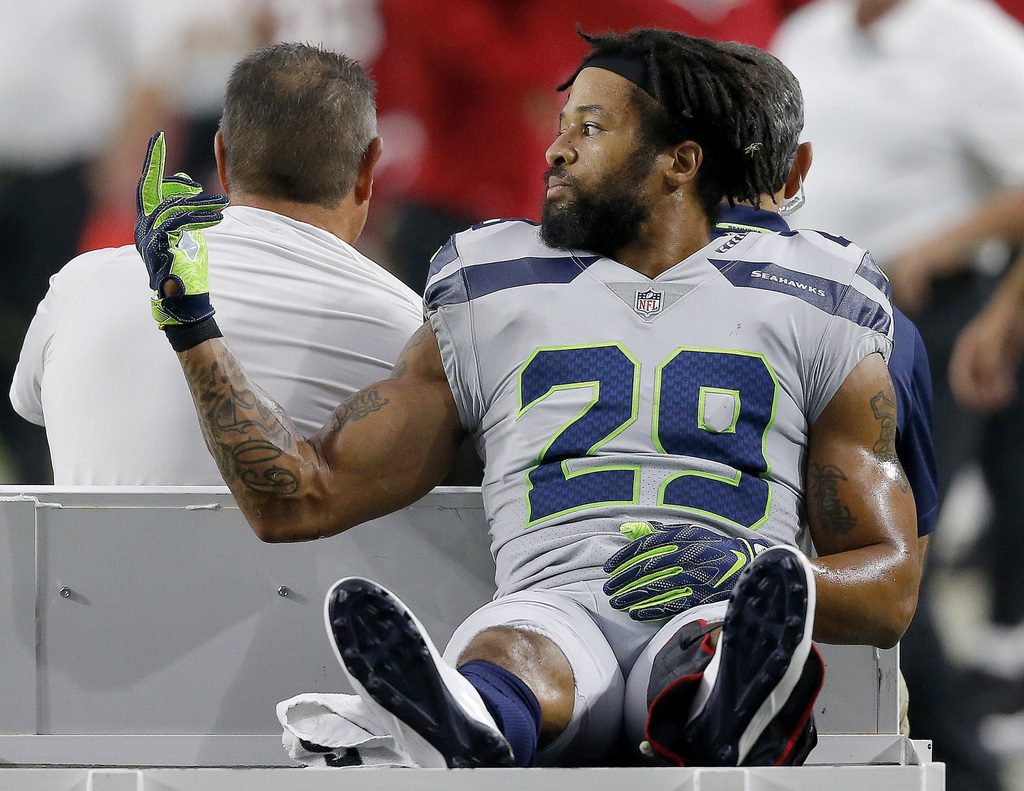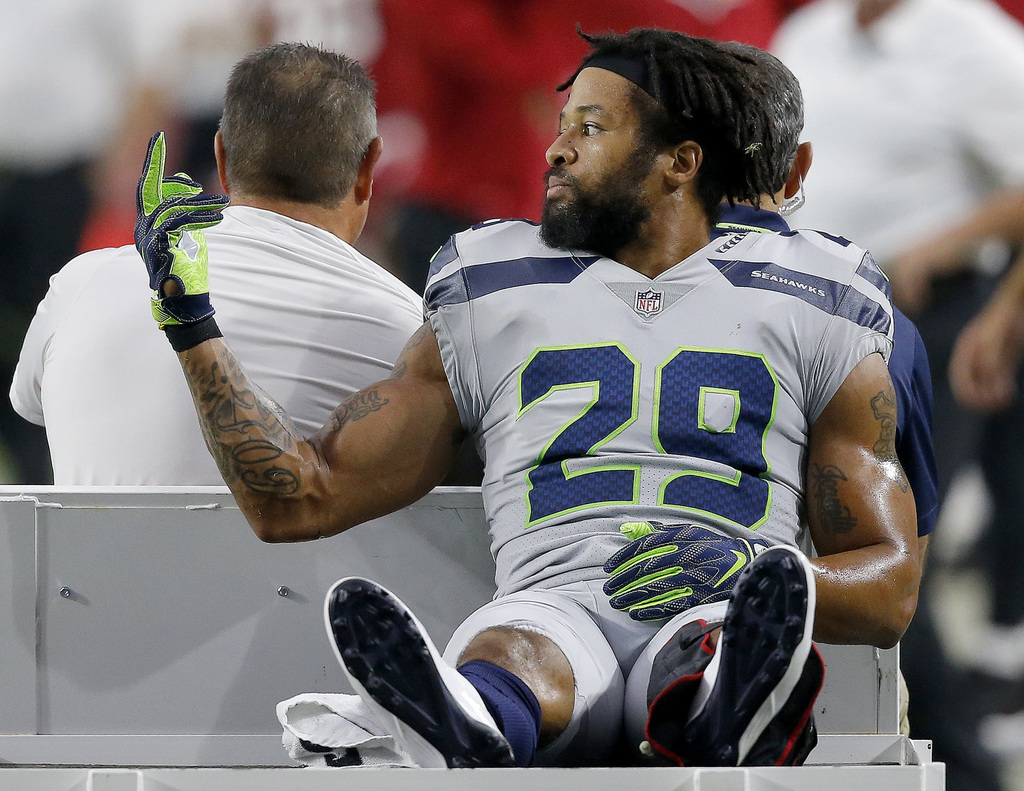[ad_1]
By Perry Green and Stephen D. Riley, AFRO Sports Desk
Seattle Seahawks super safety Earl Thomas had a unique way of thanking his soon-to-be former team for their loyalty last Sunday as he exited the field on a cart with a fractured leg. A menacing middle finger gesture by Thomas caught headlines and online views as expected but the meaning could impact the league deeper than the surface criticism. What could it mean? Perry Green and Stephen D. Riley, of the AFRO Sports Desk, debate.

Riley: Thomas’ finger ties back to the frustration of trying to force an extension from the Seahawks and having to play out a lone season with no future financial protection—the same situation Le’Veon Bell finds himself in. Coming off a fractured leg and past the magical 30-year-old mark, Thomas will definitely take a hit to his bank account next year trying to find a deal. Couple Bell’s situation and Thomas’ injury, I think you see a lot more guys take the Bell route and sit out until the last possible second. It’s sad it had to happen but Thomas’ injury served as the perfect example of what Bell and many other NFLers fear: suffering a debilitating injury without guaranteed money. Thomas and Bell could serve as pioneers of where things go for players and the league going forward. Maybe now we can talk more seriously about guaranteed NFL contracts. It’s long overdue.
Green: I doubt you’ll see guaranteed contracts emerging from this pair of events, the slave-mentality of league owners is just too ingrained. But what you could see from this is absolutely more holdouts. I’m totally on board with Bell holding his ground. It might come off as selfish and smug to outsiders but it makes total sense, and I can fully see more athletes taking that route. It’s all business in the league, and Thomas let off his feelings towards that philosophy as he exited. If he had taken Bell’s route he wouldn’t have the $8.5 million that he took home this season, but at least he’d have a healthy leg.
Riley: Players holding out is problematic for a team and franchise, but if the league budged on guaranteed contracts then there wouldn’t even be a need for things to escalate to that level. The NFLPA is definitely going to use Bell and Thomas as primary examples for contracts that shift more in favor of the player as far as guarantees. I don’t expect things to completely shift but something will happen. You can’t have the league’s best running back not playing and one of the most respected players in football flipping the bird to his own sideline. Contract structures could be completely revamped in a few years and these events will serve as the launching points.
Green: Players have been holding out for years and owners have been shrewd with the money for years. I don’t expect a seismic shift in contract negotiations but I do expect players to exercise their options more. There’s been a shift over the last decade or two of more and more players recognizing their value, and they’re sacrificing their reputations over it with no regrets. I think Bell opened some eyes and Thomas kept the attention. We’re more likely to see a holdout next season than contracts full of guarantees. We’ll look back on this season as a turning point but it might not be for reasons conducive to business.
[ad_2]
Source link


